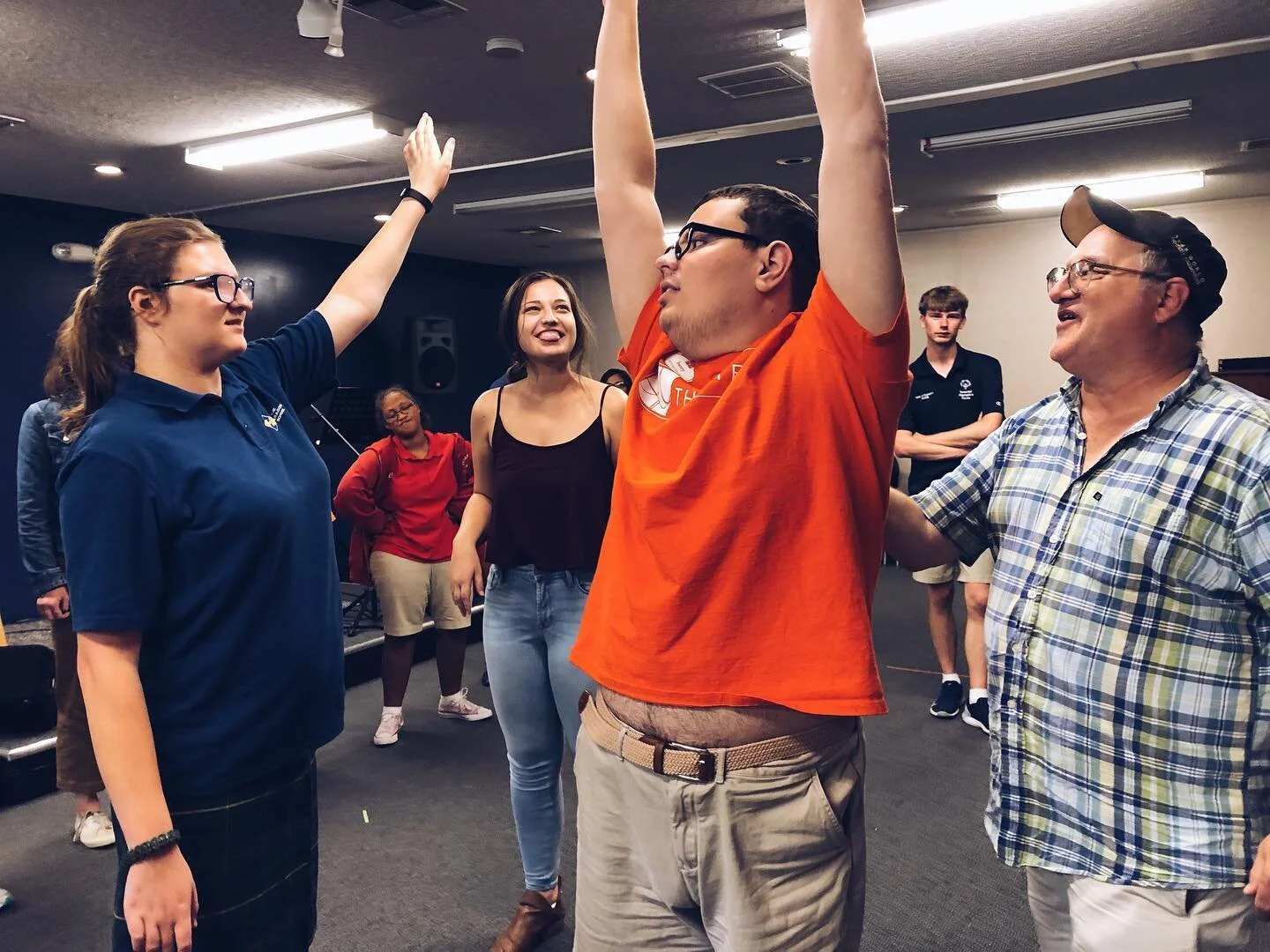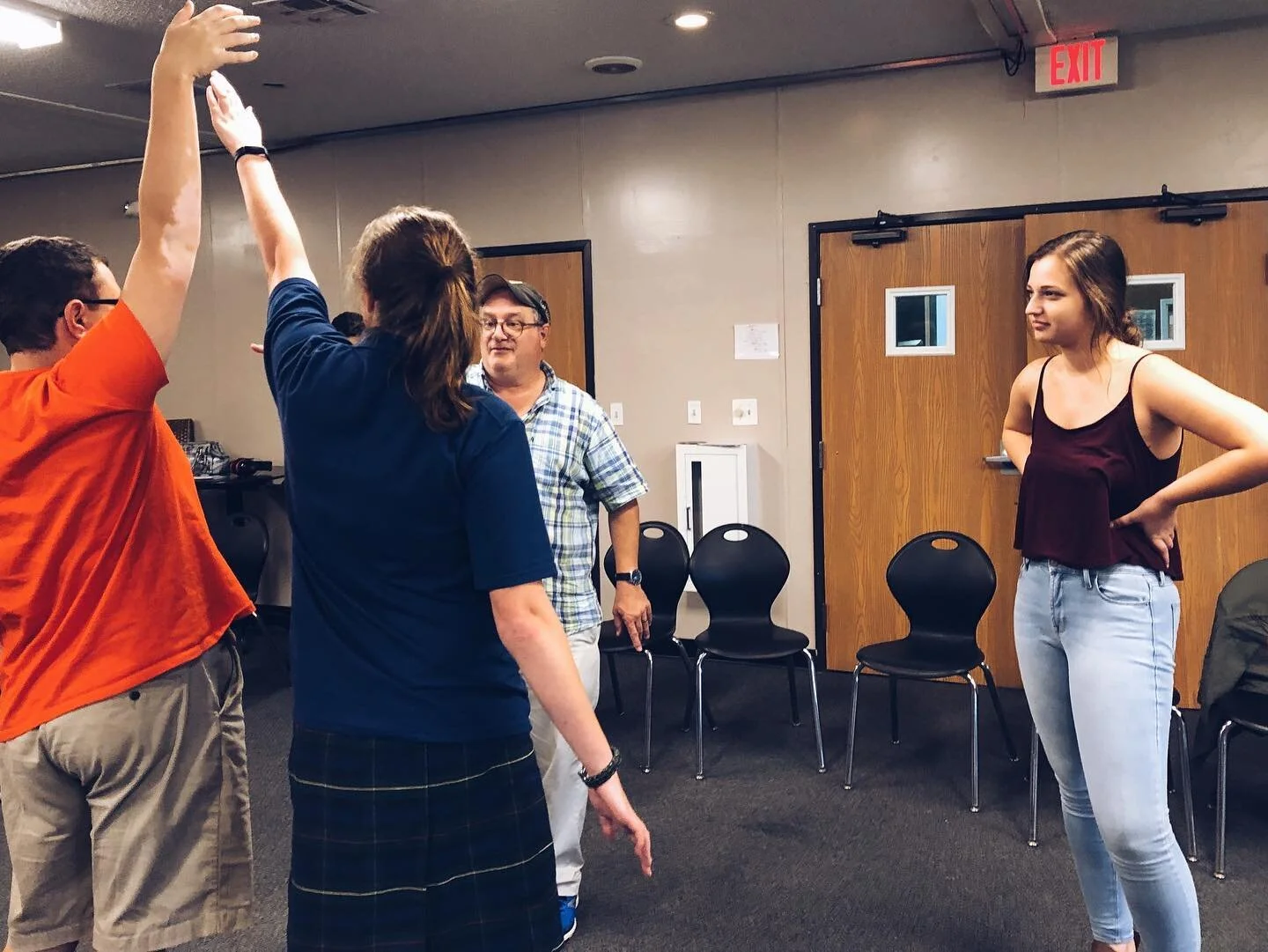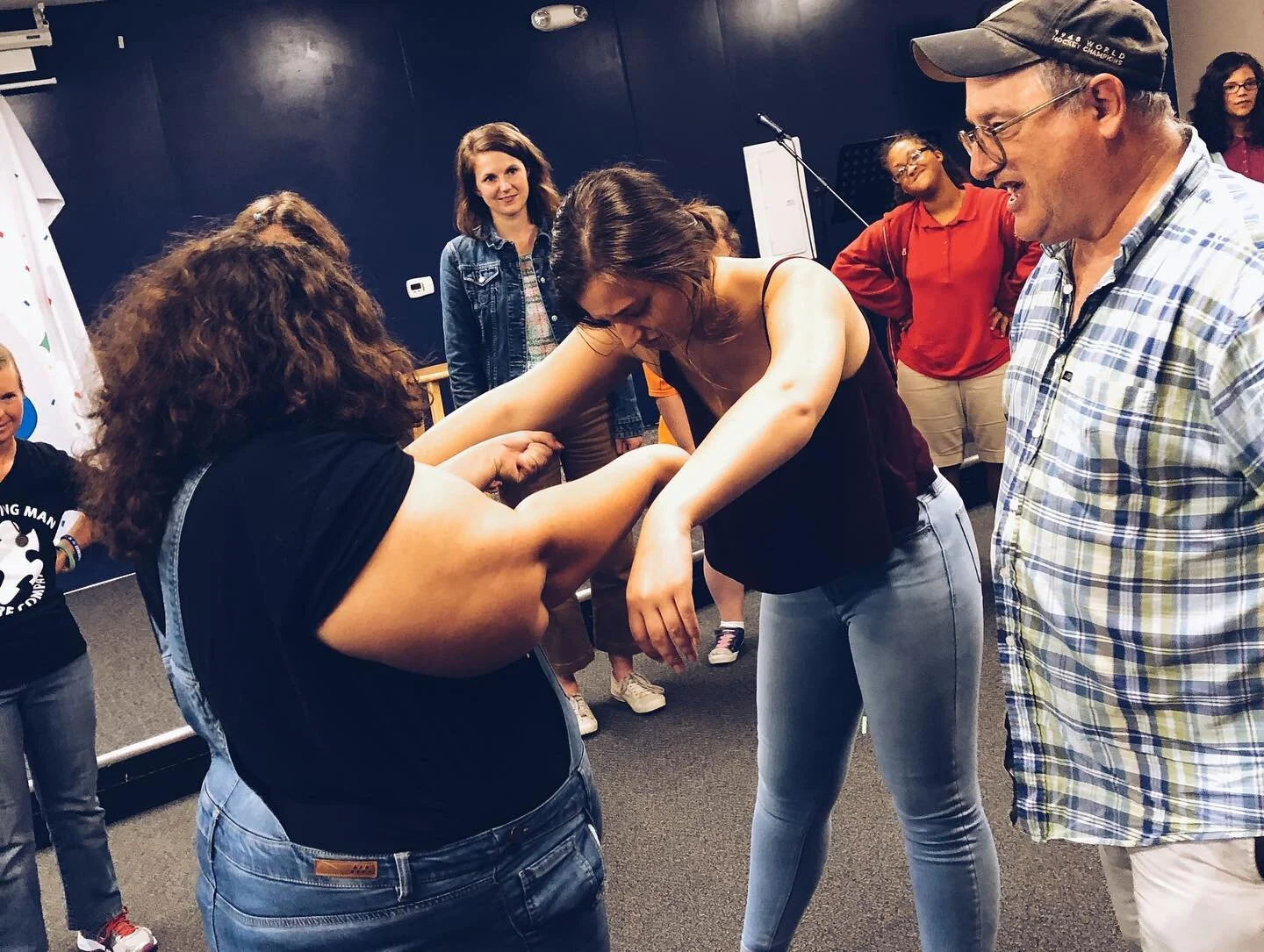Inclusivity in Theatre
A main tenant of theatre philosophy, for those with disabilities and neurotypical alike, is to cater to all kinds of people, to accept them and better understand their worlds. Theatre cultivates a trusting and safe space, that there are no wrong answers, only experimentation and the pursuit of different choices. This foundation is what creates adaptability, improvisation, and willingness to take risks… Theatre in particular seems to offer a unique milieu in which complex social interactions can be broken down into more discrete components and then rehearsed in multiple iterations with no wrong answers

Pictured above is the creative team of the Running Man Theatre Company after our performance at the Florida Theatre Conference. Through the Rollins College Student-Faculty Collaborative Summer Research Program, I co-founded a theatre and autism program at a non-profit organization that offers services and training that are not offered in other places. Over two years of research, I developed my own adaptations to theatre games, wrote original scripts, composed original music, and put on two full length plays, one being an original musical including 150 of OCA’s summer camp participants that was performed at the conference as a part of the Inclusion Festival.
Running Man Theatre Company
Ability
Theatre exercises break down social situations into steps that can be followed, while at the same time creating a positive environment creativity and the possibility of making mistakes. Theatre creates safe environments for self-expression, something for which there are few opportunities for, no matter what a person’s neuro-ability is.
Opportunity
For those with ASD and related disorders, opportunities for this kind of self-discovery are extremely scarce, and if available, are extremely and strictly supervised. Teaching art to people with disabilities is a special skill and it is imperative that teaching artists learn how to teach, direct, and work with artists of all types and levels.
Creativity
Our own being is always at the center of every character you play, and so by treating these characters as a means of demonstrating skills such as social competence, empathy, understanding, and the like, you are teaching the actor to implement those skills into their daily lives.




